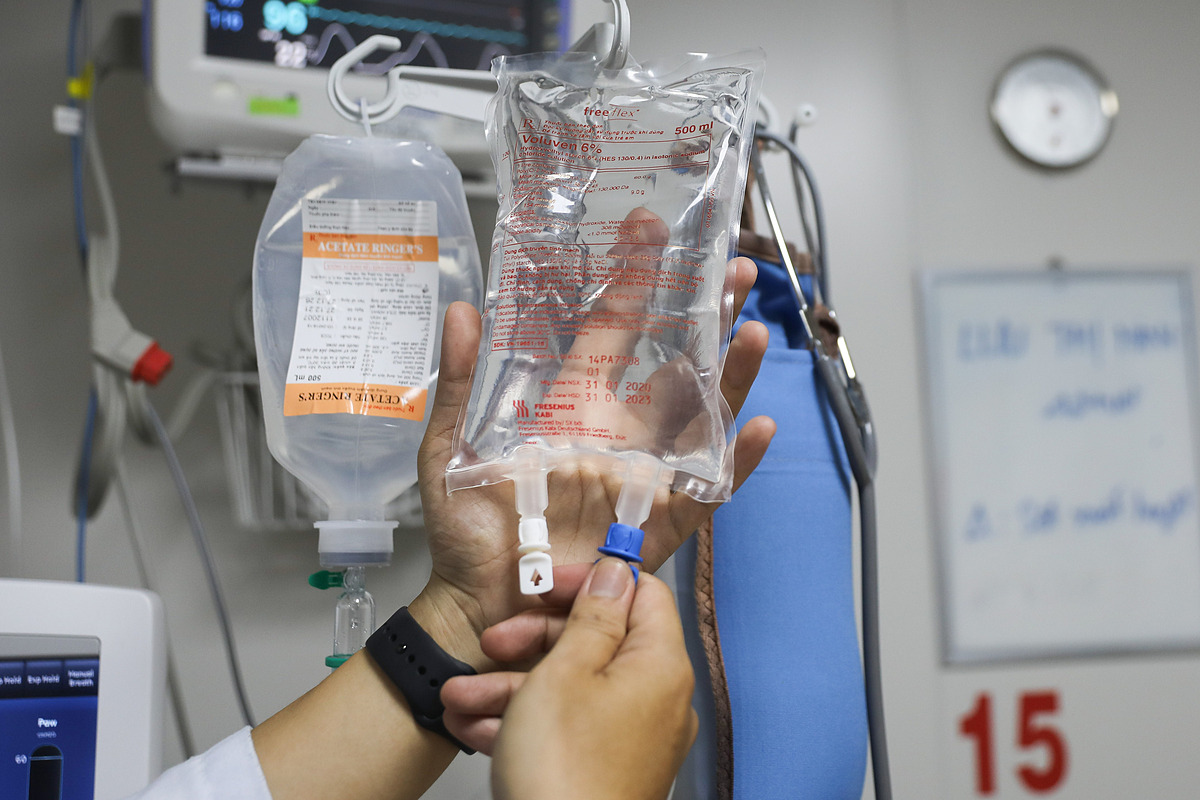On 31/7, Dr. Nguyen Minh Tien, deputy director of the Children's Hospital of Ho Chi Minh City, reported a challenging case of a 14-year-old boy admitted with dengue fever and appendicitis. The teenager, transferred from another hospital, presented with a high fever, dry cough, body aches, and abdominal pain around the navel. An ultrasound and CT scan confirmed appendicitis with significant inflammation. The boy also experienced nosebleeds due to dengue fever.
Dengue fever is known for causing bleeding. Operating on the boy for appendicitis immediately posed a high risk of bleeding complications during and after surgery, potentially life-threatening. However, delaying the appendectomy until the dengue fever subsided could have led to a worsening infection, another dangerous scenario.
Doctors carefully considered the safest treatment approach. They opted to administer intravenous fluids and antibiotics during the critical first 7 days of dengue fever, planning to perform the appendectomy afterward. After 12 hours of dengue treatment, the boy's abdominal pain intensified, and he vomited twice. His blood also showed signs of thickening, prompting a switch to high-molecular-weight fluids. The surgical team closely monitored his abdominal condition and performed regular ultrasounds every 6-12 hours.
Fortunately, after a week of this treatment, the patient's condition improved. His fever subsided, the abdominal pain disappeared, and an ultrasound showed no further signs of appendicitis. He was discharged with a follow-up appointment to assess the risk of recurrence.
According to Dr. Tien, this is a successful case of managing dengue fever complicated by acute appendicitis with non-surgical treatment. Medical literature and studies indicate that non-surgical treatment with antibiotics can be successful in over 90% of uncomplicated acute appendicitis cases. However, appendectomy remains the gold standard, especially in cases with complications or recurrence.
 |
Treating a dengue fever patient. Photo: Quynh Tran |
Treating a dengue fever patient. Photo: Quynh Tran
Ho Chi Minh City is currently experiencing a surge in dengue fever cases, with a significant increase in July, raising concerns about a wider outbreak. As of last week, the city recorded over 16,800 cases, a nearly 169% increase compared to the same period last year, including 10 deaths. Health authorities are implementing various measures to control the spread, including enhanced surveillance, outbreak management, risk assessment, and public health campaigns.
Dr. Tien advises parents to watch for early dengue symptoms and seek immediate medical attention if their child has a high fever for more than two days, along with symptoms such as restlessness, irritability, lethargy, abdominal pain, nosebleeds, bleeding gums, vomiting blood, black stools, cold hands and feet, inactivity, or refusal to eat or drink.
Vietnam has implemented a dengue fever vaccination program for children aged 4 and older, involving two doses administered 3 months apart, which has shown over 80% effectiveness in reducing the risk of infection.
Le Phuong












